William Barr is shockingly clear about his authoritarianism
Now the attorney general is arguing that police protection is conditional on obedience — which is exactly what authoritarian regimes say

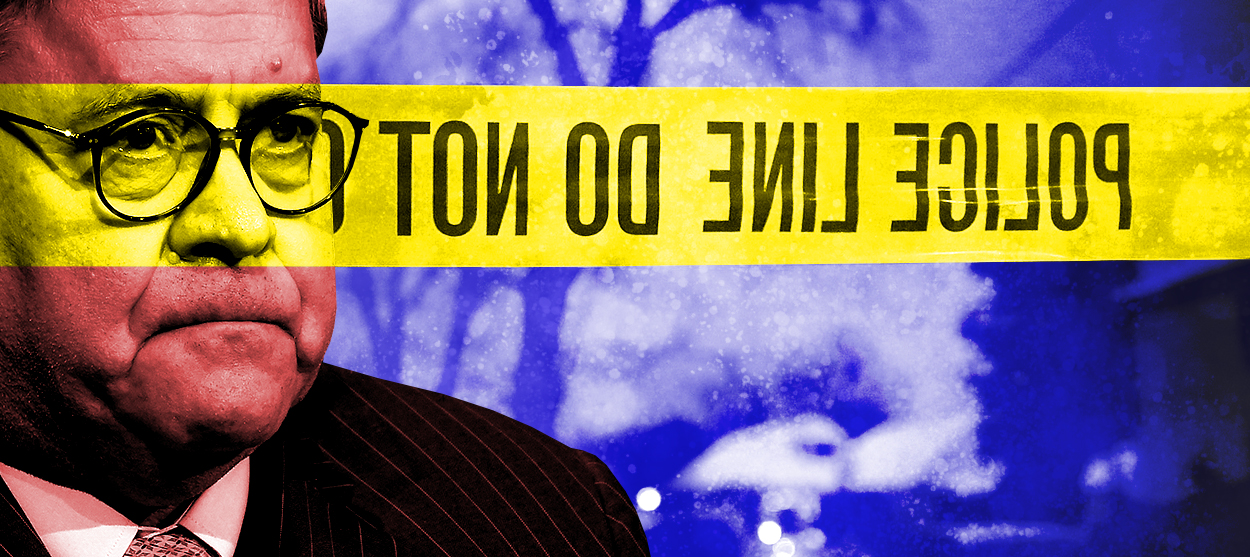
A free daily email with the biggest news stories of the day – and the best features from TheWeek.com
You are now subscribed
Your newsletter sign-up was successful
William Barr, the top federal law enforcement officer in the United States, is fast becoming the nation's chief advocate for an authoritarian vision of American government.
First came his October 11 speech at the University of Notre Dame in which the attorney general embraced a deeply anachronistic vision of religion in American public life. It was a story of a morally upstanding Republican majority upholding biblically based Judeo-Christian piety and righteousness against an aggressive minority faction of liberals and progressives who use positions of cultural and political power to impose an agenda of moral relativism on the nation.
As Ross Douthat, a religious conservative himself, pointed out in a critical column on the speech, this construal of the American scene distorted reality in multiple ways. What Douthat didn't say is that, by seeking to convince religious conservatives that they have the American majority on their side and that it's crucially important for the future of American democracy that this side prevail in its battle against godless relativists, Barr was providing a justification for using all the powers of the federal government to bring about that outcome.
The Week
Escape your echo chamber. Get the facts behind the news, plus analysis from multiple perspectives.

Sign up for The Week's Free Newsletters
From our morning news briefing to a weekly Good News Newsletter, get the best of The Week delivered directly to your inbox.
From our morning news briefing to a weekly Good News Newsletter, get the best of The Week delivered directly to your inbox.
Five weeks later came Barr's even more alarming speech to the conservative legal group The Federalist Society. Here he described the presidency (and because of that, American self-government itself) as under siege by Congress and the courts. The greatest achievement of the American constitutional framers, he claimed, was the creation of a strong, independent, and unitary executive. And yet the liberals and progressives in charge of these other branches of government do everything in their power to hobble and weaken the presidency, which should, and will, do everything it can to reaffirm its distinctive powers and prerogatives.
As I argued in a column about this speech, Barr wasn't just being far more flagrantly partisan than is typical for the head of the Justice Department. He was also issuing a sweeping defense of the president he serves. In Barr's view, President Trump should not just be given the extraordinary latitude to wage war around the world without congressional authorization that his predecessors over the past two decades have enjoyed. He would ideally also be free (as I put it) to "impose the travel ban, end DACA, add a citizenship question to the census, and make American foreign policy in Eastern Europe serve his personal whims and conspiratorial obsessions without having to face any pushback from Congress or the courts. No subpoenas. No irritating injunctions. No pesky Freedom of Information Act requests. No endless investigations. Trump would simply lead, and everyone else would follow."
That brings us to Barr's comments on Tuesday at the Attorney General's Award for Distinguished Service in Policing. Instead of limiting his remarks to praise for the heroism of police officers who go above and beyond the call of duty in seeking to protect citizens from danger and criminality, Barr made a point of singling out those "communities" that fail to show "the respect and support that law enforcement deserves." Those communities that don't express the proper "support and respect," he warned ominously, "might find themselves without the police protection they need."
It's hard to read that passage without hearing it as a threat to minority (and especially African American) communities that have taken a stand in recent years against police brutality and excessive force. Show proper deference to the police, the nation's chief law enforcement officer is saying, or else the cops may choose to stop protecting you. The protection the police provide is conditional, in other words, on your obedience.
A free daily email with the biggest news stories of the day – and the best features from TheWeek.com
It would be hard to think of a purer expression of the authoritarian mindset than this statement. In a liberal democracy that abides by the rule of law, the laws are supposed to protect everyone equally. The people empower police officers to enforce these laws. If officers fail to enforce them equally by withdrawing protection from certain communities, they are not doing their jobs. They should be reprimanded, retrained, or fired. On the other hand, if the people come to believe (with abundant publicly available evidence) that police officers are overstepping their authority and using excessive force in doing their jobs, the people have every right to protest and insist that this behavior change.
In a liberal democracy, it is the obedience and deference of ordinary citizens to potentially lethal authority wielded by agents of the government, and not the willingness of those agents to fulfill their solemn duty, that should be considered conditional.
But Barr's statement isn't just an expression of authoritarianism. It's also a reflection of the mob-boss mentality that prevails in the administration Barr serves with such abundant loyalty and enthusiasm. Barr delivered his remarks during a week when the impeachment inquiry in Congress moved to the House Judiciary Committee, where representatives heard testimony about whether, among other things, it is acceptable for the president of the United States to threaten to withhold desperately needed military aid from a vastly weaker country in order to get that country to perform a "dirty tricks" political favor that would personally benefit that president.
That is, Trump is accused of threatening to make previously approved military aid conditional on a display of obedience — just as Barr would have police protection made conditional on a display of deference to the cops.
That isn't how the rule of law is supposed to work. It's the way authoritarian regimes, crime families, and robber gangs work. Unfortunately, it's also how the president and his henchman at the Justice Department would very much like American government to work, from the Oval Office on down to the streets of our cities.
It's up to the rest of us to show them both that we don't share their admiration for rule by thug.
Damon Linker is a senior correspondent at TheWeek.com. He is also a former contributing editor at The New Republic and the author of The Theocons and The Religious Test.
-
 6 exquisite homes with vast acreage
6 exquisite homes with vast acreageFeature Featuring an off-the-grid contemporary home in New Mexico and lakefront farmhouse in Massachusetts
-
 Film reviews: ‘Wuthering Heights,’ ‘Good Luck, Have Fun, Don’t Die,’ and ‘Sirat’
Film reviews: ‘Wuthering Heights,’ ‘Good Luck, Have Fun, Don’t Die,’ and ‘Sirat’Feature An inconvenient love torments a would-be couple, a gonzo time traveler seeks to save humanity from AI, and a father’s desperate search goes deeply sideways
-
 Political cartoons for February 16
Political cartoons for February 16Cartoons Monday’s political cartoons include President's Day, a valentine from the Epstein files, and more
-
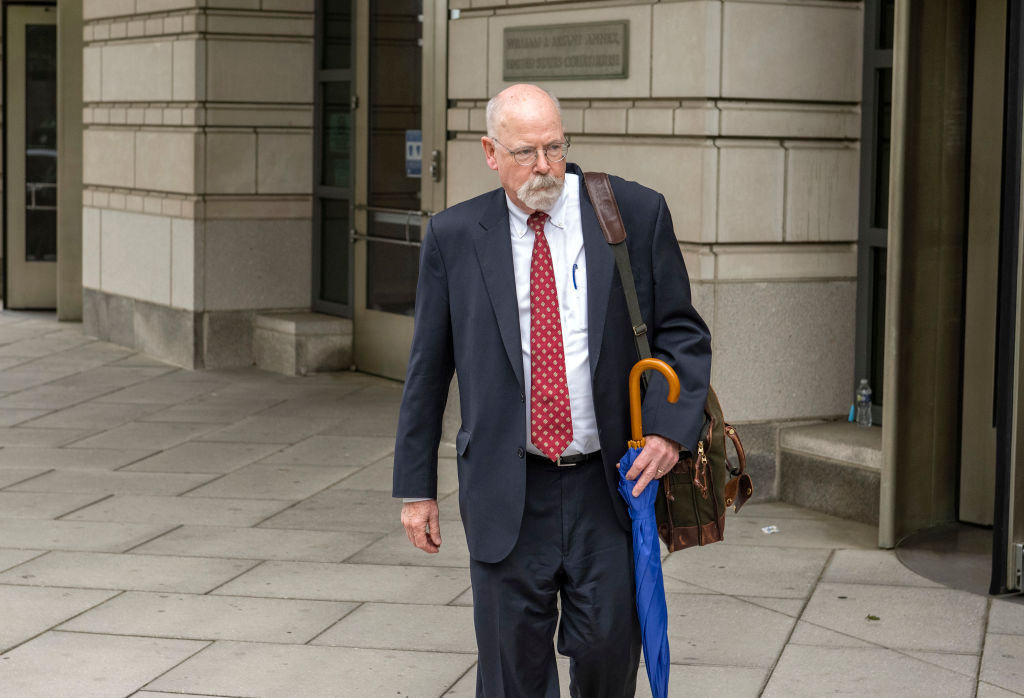 John Durham's secret criminal investigation reportedly involved Trump, not Clinton or the FBI
John Durham's secret criminal investigation reportedly involved Trump, not Clinton or the FBISpeed Read
-
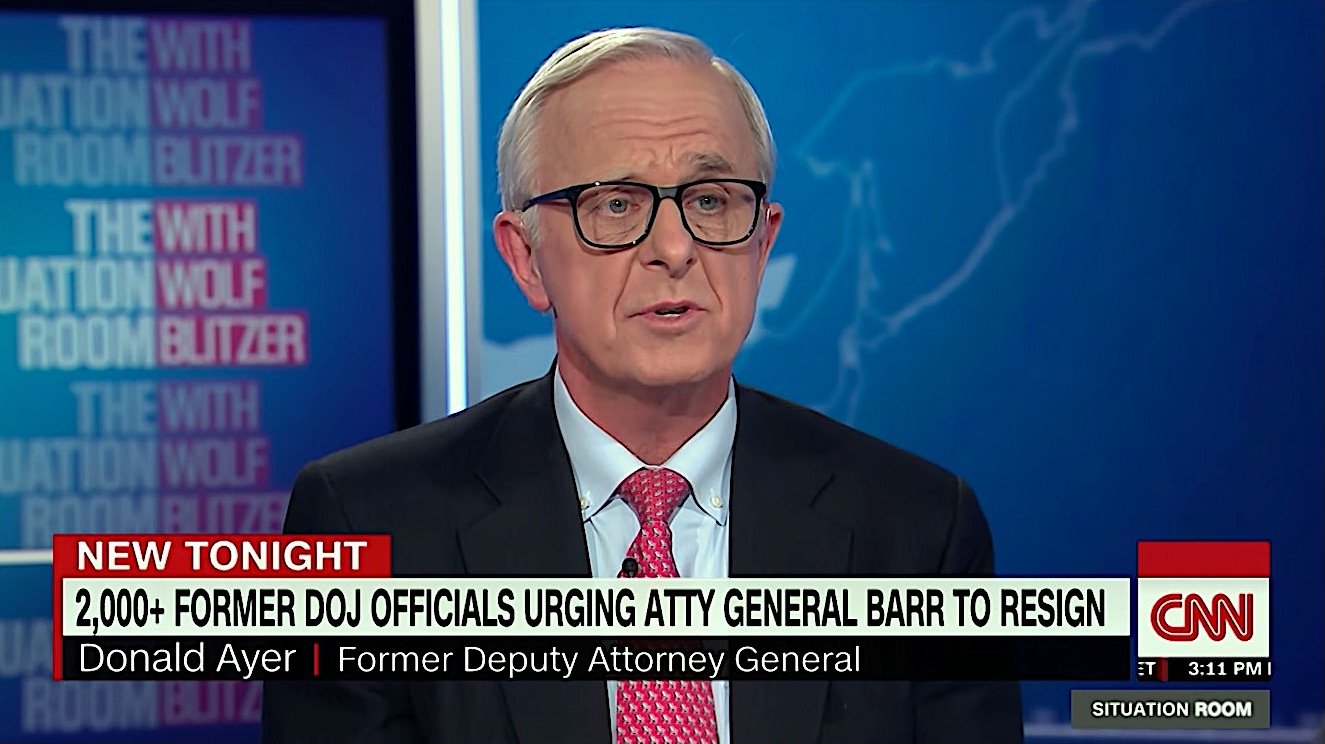 George H.W. Bush deputy attorney general says ex-colleague Barr is creating a 'banana republic'
George H.W. Bush deputy attorney general says ex-colleague Barr is creating a 'banana republic'Speed Read
-
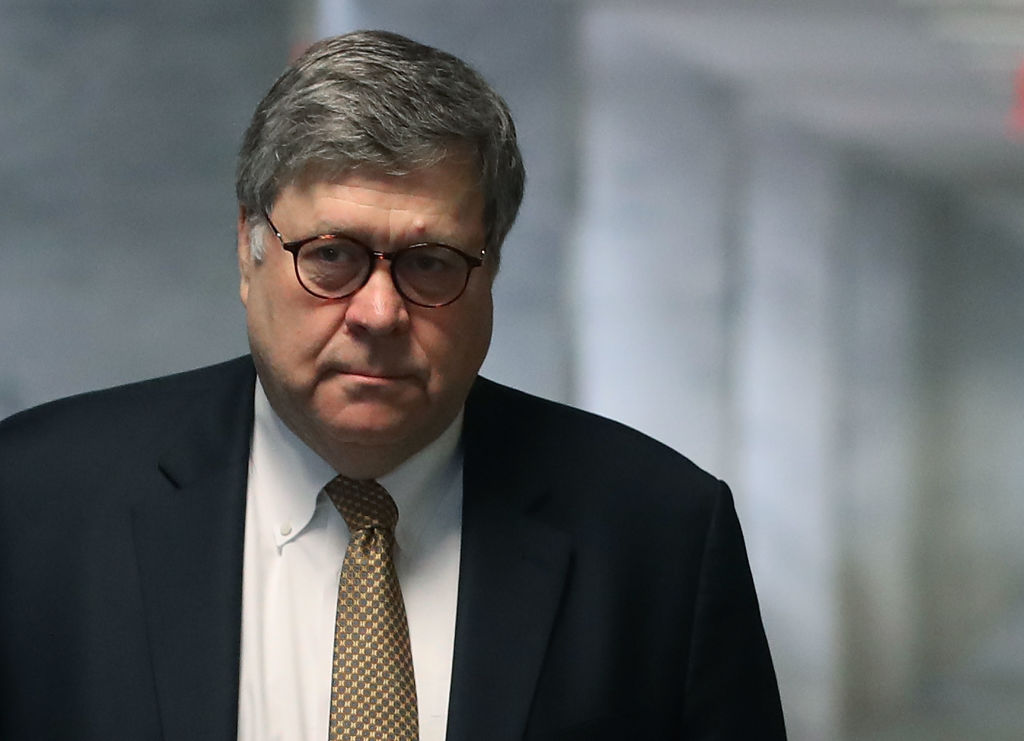 Lev Parnas says Attorney General William Barr was 'basically on the team'
Lev Parnas says Attorney General William Barr was 'basically on the team'Speed Read
-
 Attorney General Barr is reportedly unhappy with a key finding of the DOJ's upcoming FBI-Russia report
Attorney General Barr is reportedly unhappy with a key finding of the DOJ's upcoming FBI-Russia reportSpeed Read
-
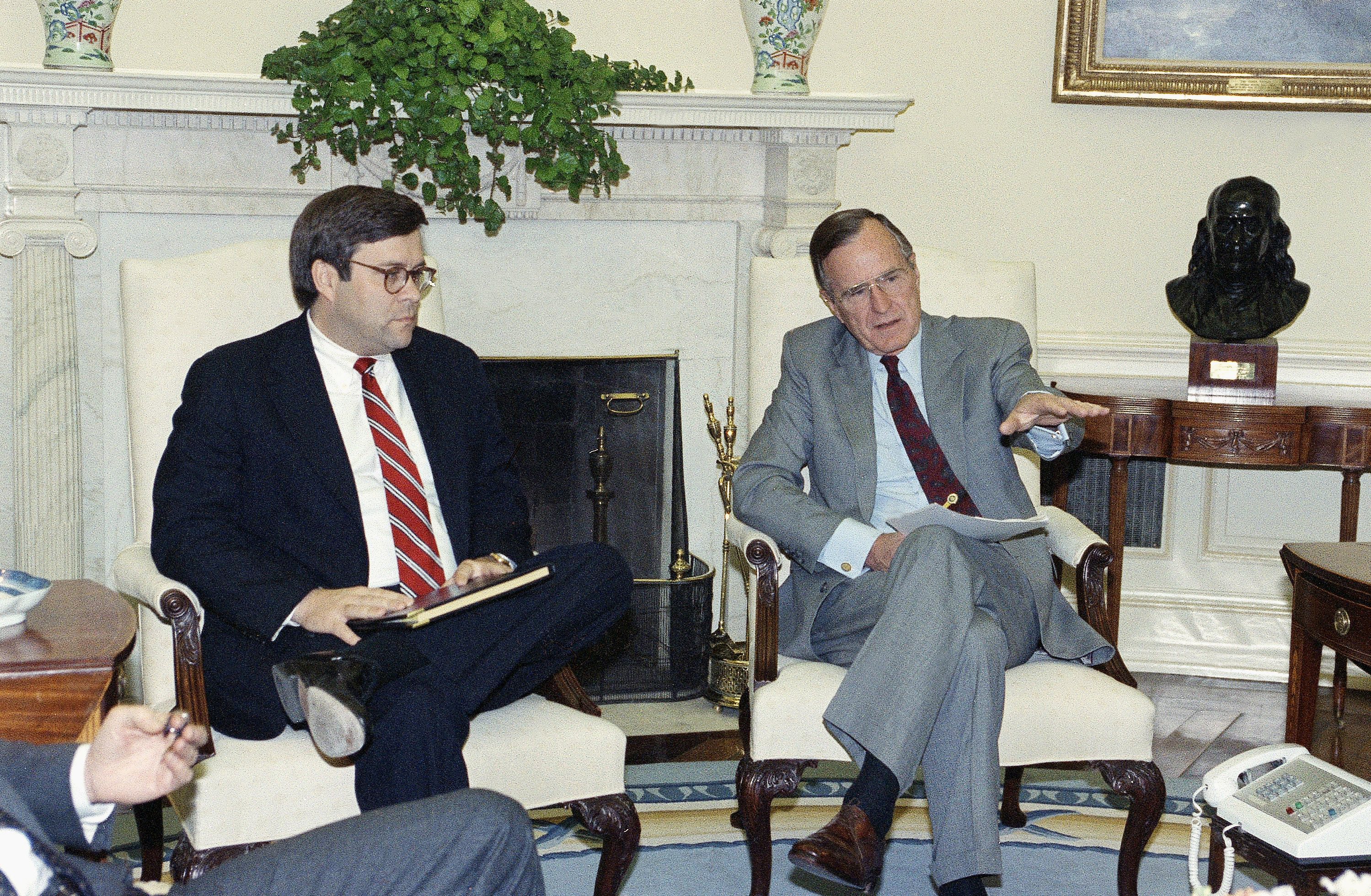 How William Barr handled special counsel investigations the last time he was attorney general
How William Barr handled special counsel investigations the last time he was attorney generalSpeed Read
